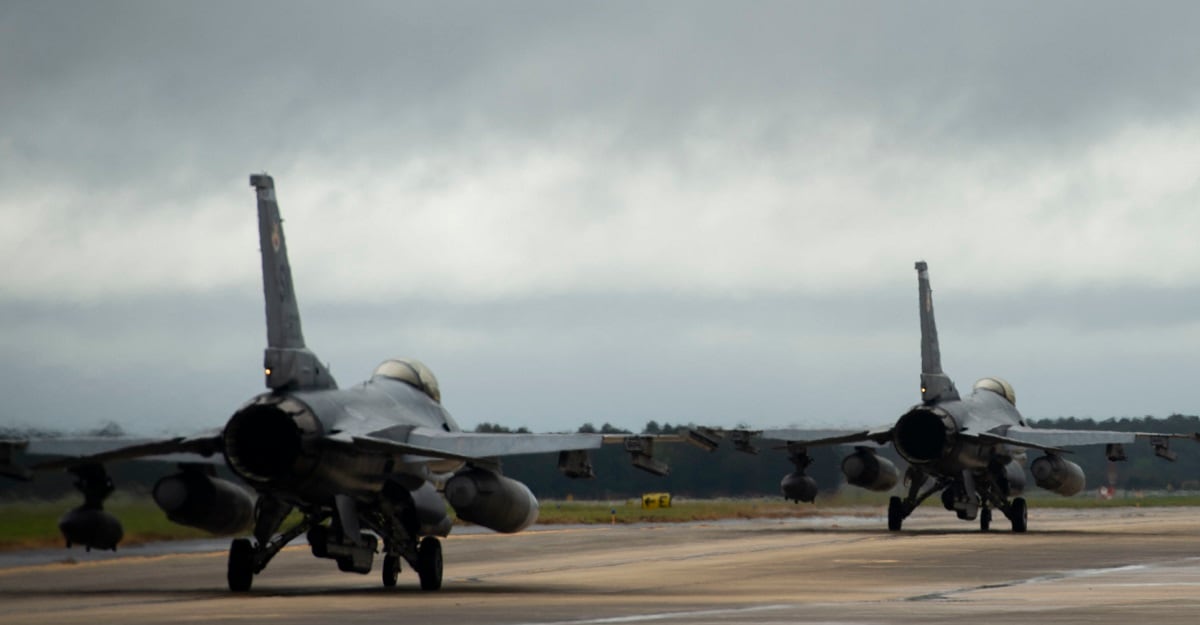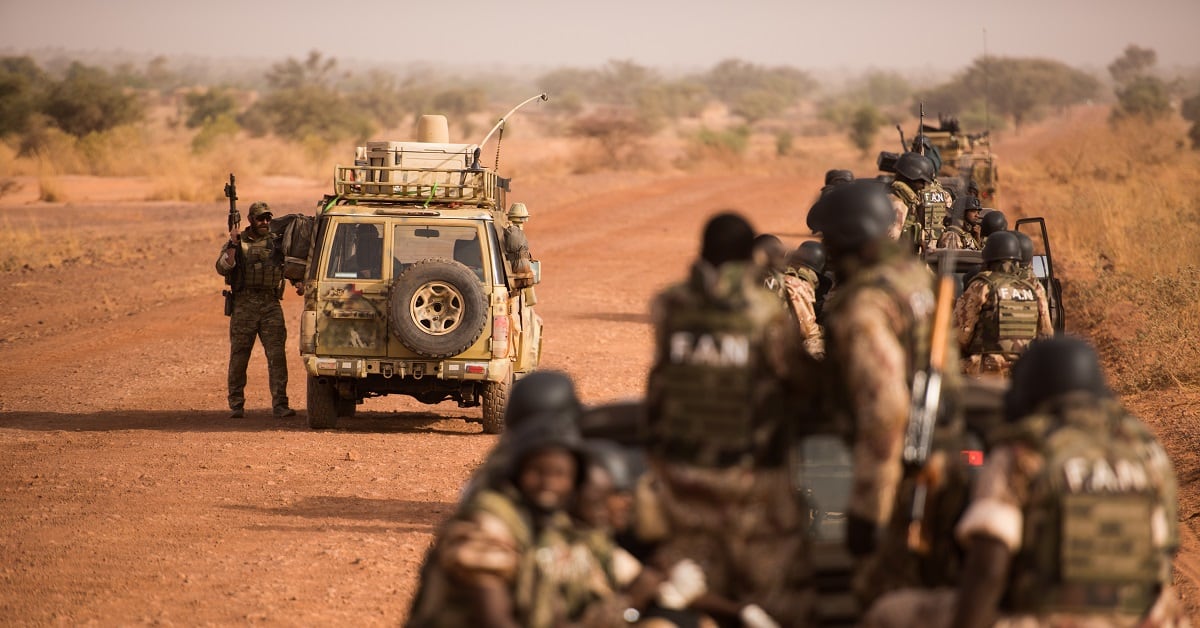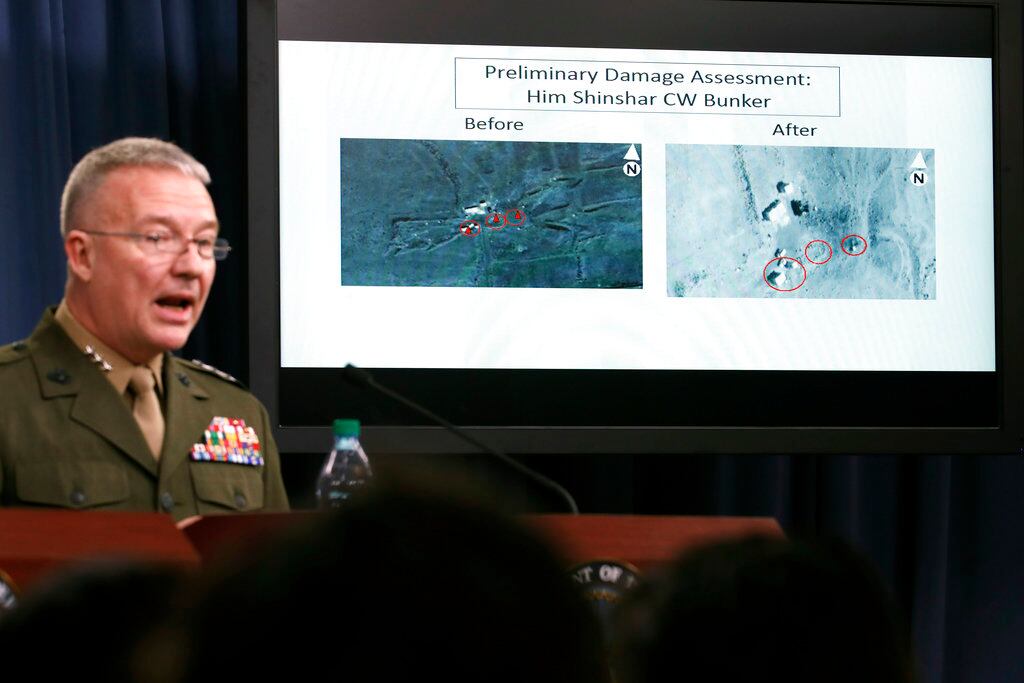The U.S. military should refine how it identifies and measures civilian casualties during combat operations, to include greater collaboration with humanitarian groups, according to a recently released Pentagon report.
The report, initiated by former Defense Secretary Jim Mattis and carried out by Joint Chiefs Chairman Gen. Joseph Dunford, focuses on U.S. air and artillery strikes in Afghanistan, Iraq, Syria and Libya between 2015 and 2017.
It also calls for declassification of investigations into civilian casualties, or CIVCAS, when appropriate, investment in tools to assist ground force commanders in developing greater situational awareness, and the standardization of how U.S. combatant commands should address wrongdoing.
The report was compiled by the National Defense University with participation from military officials, think tanks and non-governmental organizations, or NGOs.
The findings underscore a growing concern of human rights advocates: The U.S. increasingly relies on local partner forces to wage war, and they often do not share the Pentagon’s concern for mitigating civilian deaths.
The first recommendation in the report is for the U.S. military to “address the increased risk of CIVCAS when U.S. forces operate by, with and through partner forces whose interests, priorities and capabilities may not necessarily align with those of the United States.”
RELATED

Partner forces have been essential to the success of Operation Inherent Resolve, the U.S.-led coalition to defeat the Islamic State. But these allies lack the equipment and training necessary to target airstrikes as precisely as American troops and also may not have the same ethical concern to mitigate civilian deaths.
Airwars, a London-based nonprofit that tracks and archives airstrikes in Iraq, Syria and Libya, has previously raised concerns over the actions of the U.S.-backed Syrian Democratic Forces, or SDF.
After Inherent Resolve officials said there were "zero unintentional civilian deaths” in the month of September, Chris Woods, who leads Airwars, said he was concerned the Syrian Democratic Forces weren’t willing to admit wrongdoing.
“That claim of no civilian harm speaks to systemic flaws in OIR’s casualty monitoring — and the notorious unwillingness of the coalition’s Syrian ground partners, the SDF, to concede any civilian harm from their own actions,” Woods told Air Force Times in October.
The report recommends steps to better keep partner forces from slipping out of control, such as the investment in tools that would provide better battlefield situational awareness to U.S. ground force commanders.
U.S. military investigators should also “systematically seek out additional sources of information on potential civilian casualties as part of the self-reporting process,” the report recommends.
RELATED

Such sources include social media posts, locals who claim to have lost friends and family in airstrikes, and NGOs.
The report notes that humanitarian groups have complained about a decrease in U.S. military transparency when civilian deaths are reported.
U.S. Central Command’s public release of investigation findings offers little detail as to why a CIVCAS allegation is disregarded, other than saying it’s considered “not credible," according to the documents.
“NGOs criticized the aggregation of U.S. and coalition CIVCAS incidents since 2017, as well as the fall 2017 decision to no longer share Operation Freedom’s Sentinel strike data,” the report reads, using the operational name for the U.S. counter-insurgency mission in Afghanistan.

The report also advised the Joint Staff to consider standardizing the CIVCAS review process across combatant commands. This standardization may include review boards for civilian casualty incidents overseen by the next echelon of command.
Also of note, the report recommended that the Joint Staff develop specific guidance for combatant commands when CIVCAS do occur, for example by offering compensation, explanations, community projects and apologies to those impacted.
“This should be informed by host nation customs, laws and norms that account for the particularities of each [Area of Operation],” the report reads.
In a public release last month, the U.S.-led coalition to defeat the Islamic State said 1,190 civilians have been unintentionally killed by the coalition’s more than 32,000 air and artillery strikes since August 2014.
However, that number is often reported as much higher by NGOs.
Despite the discrepancies in reporting, the recent CIVCAS report did not attribute any of the increases in civilian deaths, especially in Iraq and Syria, to its forces’ methods for establishing positive identification of combatants.
“There is a widespread priority to minimize CIVCAS across the levels of command and the Positive Identification process has sufficient guidance and structure and therefore does not increase the risk for CIVCAS,” the report reads.
Kyle Rempfer was an editor and reporter who has covered combat operations, criminal cases, foreign military assistance and training accidents. Before entering journalism, Kyle served in U.S. Air Force Special Tactics and deployed in 2014 to Paktika Province, Afghanistan, and Baghdad, Iraq.





